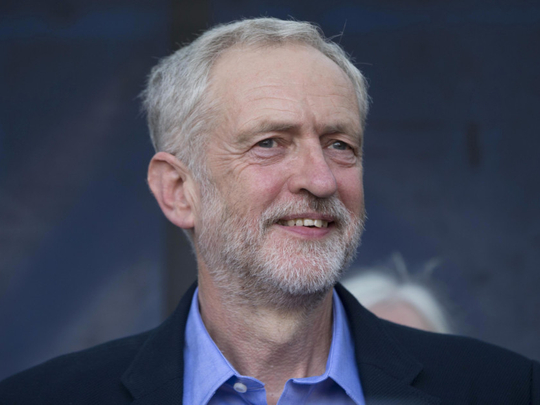
It must surely rank as the greatest against all-odds victory in British political history. Jeremy Corbyn began this contest as beyond-rank-outsider. He was 200-1, and that was one of the most favourable odds offered. Outside the campaigns he most passionately champions, barely anyone knew who this mild-mannered backbencher and his award-winning beard was.
After the most open and democratic contest in Labour’s history — an election run by rules introduced to appease the party’s Blairite right, who wanted to dilute the unions’ influence — this man now has the biggest mandate of any Labour leader in history. A disclaimer: I’m someone who has actively backed his campaign, and spoken at some of his rallies. At the outset, the campaign had one clear purpose — to help set the terms of debate and put policies on the political agenda. So how did he win? The Corbyn phenomenon has to be put in the broader context of surging disillusionment with political elites across the western world, which finds its expression in support for Bernie Sanders and Donald Trump, Podemos and the Front National, the Scottish Nationalist Party (SNP) and the United Kingdom Independence Party (Ukip). Social democracy is in crisis because it accepted the underlying principles of austerity and therefore has little to say.
A vacuum was left and the Corbyn phenomenon filled it. He offered an optimistic hopeful vision that resonated — and his rivals failed to do so. The heirs of New Labour have a lot of soul-searching to do, and it will mean rejecting the negativity and nihilism represented by their champions in the media. But have no doubt. If this was an incredible political achievement, it was the easy bit. The challenges now faced by a Corbyn-led Labour party are absolutely huge. Those who have been inspired by his message must do more than just vote for him. A vast and vibrant grassroots movement has to be built in communities across Britain. It must love-bomb its opponents and try to reach out to people who do not vote, to Ukip voters, SNP voters, Green voters and yes, Tory voters too. The media campaign against Corbyn’s leadership will surely be the most intense in British history, and only a big grassroots movement can counteract it.
What drives Corbyn, like anybody on the left, more than anything else is the plight of the poorest in society, low-paid workers, those with no affordable housing, and so on. But a political coalition cannot be built purely out of the poorest and the sympathy of others. Now his leadership must also reach out to middle-income and middle-class people. His campaign has come up with detailed policies on self-employed people, who lack security and rights. This must be front and centre. As well as pledges on council housing and regulating private rents, he must build on his policies to get people on the housing ladder if that is what they aspire to, particularly young people. Older people turn out more, and backed the Tories decisively in May. Policies on social care and pensioner poverty, for example, must be offered.
On immigration, he must rebut the scapegoating of migrants and refugees for the problems caused by the powerful, and offer solutions to issues such low pay, unaffordable housing and job insecurity that fuel hostility. But he can, for example, offer extra funds for communities with higher levels of immigration so that the economic benefits of people moving here is felt.
The economic strategy must not simply be anti-austerity, but pro-something else, a forward-looking economic plan that modernises infrastructure and promotes the renewable energy and hi-tech industries of the future.
Democratising the economy, too, with strategic democratic public ownership, rather than the top-down nationalisation of the past. Social security spending can be reduced with a living wage and in dealing with the housing crisis. Labour was nearly wiped out in Scotland in May and the SNP is currently polling up to 55 per cent, while Labour languishes at 20 per cent. Turning that around in time for the Holyrood elections next year is impossible. Labour must be patient as it tries to win over those who abandoned it, grovel for letting them down so badly and show that it has indeed changed.
Corbyn has few supporters in the parliamentary Labour party, so he will have to be conciliatory with his appointments and involve MPs more in policymaking. Broad-based conferences should help determine policies, so MPs who vote against the whip are rebelling against the party rather than simply the leader. The Tories will be baying at prime minister’s questions. Corbyn will have to reboot the format so it is no longer gladiatorial.
Then there are other challenges. The Tories are aiming to bankrupt the Labour party with their new trade union legislation. That in itself is an existential threat to the party. It is a grassroots movement that catapulted Corbyn to the top.
— Guardian News & Media Ltd










